Gender Segregation In Iranian Universities Sparks Controversy
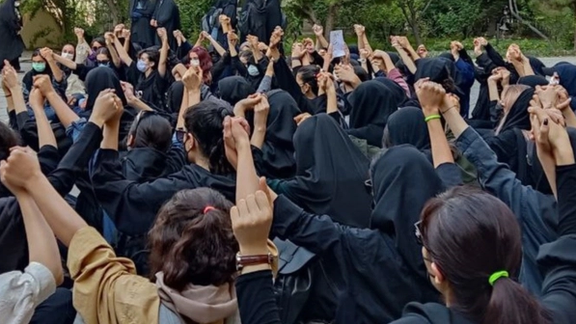
In the midst of an ongoing debate over the expulsion of university professors, student unions across Iran have voiced their protest against gender segregation in classrooms.

In the midst of an ongoing debate over the expulsion of university professors, student unions across Iran have voiced their protest against gender segregation in classrooms.
Iran's Student Union Council issued a statement on Monday, in response to a letter signed by Abolfazl Ghafari, the Deputy for Cultural, Social, and Student Affairs at Ferdowsi University in Mashhad advocating for the introduction of gender segregation.
The memo has also been shared with the heads of other faculties within the institution, signaling a broader institutional shift towards segregation. The students’ statement underscored the divisive nature of gender separation and rallied against it.
The discourse on gender segregation in Iranian universities is not new, having spanned several decades and permeated various aspects of campus life, including dormitories, library halls, and sports facilities. Furthermore, many single-gender universities have been established in recent years.
While Supreme Leader Ali Khamenei expressed opposition to physically partitioning classrooms in the late 1990s, he has more recently advocated for the Islamization of universities and the avoidance of mixed-gender interactions.
As the anniversary of last year’s protests approaches and nationwide demonstrations loom, the government has formally launched the implementation of gender segregation within university classrooms.
Simultaneously, the expulsion of professors, summoning of students, and issuance of suspension and expulsion orders across various universities continues. Some protesting students remain under arrest and trial, further deepening the tensions in the field of higher education.
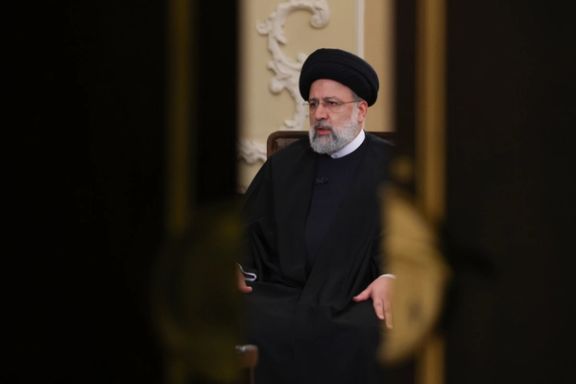
Iran's Minister of Culture has praised President Raisi’s character as a trusted leader of the Islamic Republic, saying he has been “tested across various critical junctures.”
Mohammad-Mehdi Esmaeili, speaking in support of the president, also highlighted that during his youth, Raisi was entrusted with numerous judicial missions by the late Ruhollah Khomeini, the founding leader of the Islamic Republic.
President Raisi is facing domestic and international scrutiny due to his alleged involvement in orchestrating mass prison executions in 1988. Many of these executions targeted individuals associated with opposition groups such as the Mujahedin-e Khalq Organization (MEK), as well as leftist, secular, and Kurdish organizations.
Raisi was a member of an ad hoc judicial committee colloquially known as the "Death Commission." This committee was responsible for deciding the fates of prisoners during summary trials that were held in secret. While Raisi has denied direct involvement in issuing sentences, he has defended the actions against the MEK, citing their history of “violence” as justification.
Notably, some prisoners had been previously released from incarceration, only to be rearrested and retried during the execution spree, which was also referred to as a prison purge. The intention behind these retrials was to ensure prisoners fully denounced the MEK and demonstrated repentance.
The precise number of prisoners executed during the 1988 purges remains uncertain. However, according to Amnesty International, the Iranian authorities "forcibly disappeared" and "extrajudicially executed" an estimated 5,000 individuals between July and September 1988.
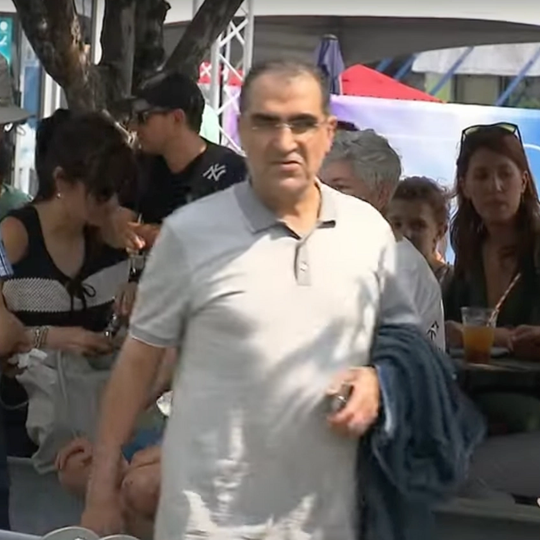
Reuters - Canada will deny temporary residency to Iran's former health minister Hassan Ghazizadeh Hashemi, Canadian Immigration Minister Marc Miller said on Monday.
He cited Tehran's human rights record, after Hashemi was reportedly seen in Montreal.
"Based on an assessment of the relevant facts recently brought to my attention, I have exercised my authority under s. 22.1 of the IRPA to prevent Mr. Seyed Hassan Ghazizadeh Hashemi from becoming a temporary resident of Canada for the maximum period of 36 months," Miller said in a post on X, formerly Twitter.
Section 22 of the Immigration and Refugee Protection Act gives the Canadian immigration minister the authority to deny temporary residency to a foreign national for up to three years.
"The decision itself, as communicated to the individual, is tied to Iran's disregard for human rights," Miller added, without disclosing Hashemi's location, whether he had sought residency, or how the information was conveyed.
Hashemi served as the minister of health for the Iranian government from 2013 to 2019 under former President Hassan Rouhani. He was widely seen as the key official behind a 2014 launch of a plan for universal medical insurance.
Iran International, a US-based news outlet focused on the Iranian diaspora, reported earlier in August that Hashemi was spotted in Montreal. It cited screenshots from a promotional video for the Quebec province's tourism industry. Reuters could not independently verify the presence of Hashemi in Montreal.
Canada cut diplomatic ties with Iran in 2012 and listed the country as a supporter of extremism. It also recently imposed sanctions on Iran over alleged human rights abuses and the killing of Mahsa Amini, a woman who died in the custody of Iran's morality police that enforced strict dress codes.
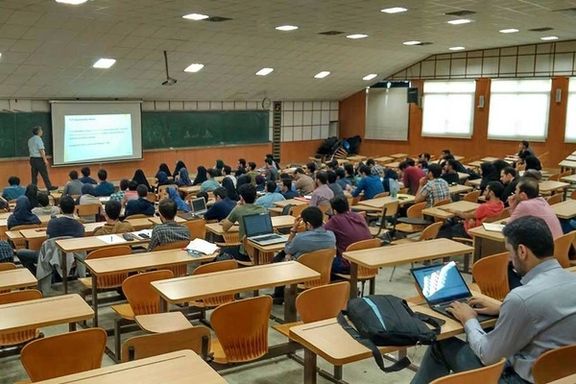
Purging dissident professors in Iran, which commenced shortly after the protests of the Woman, Life, Freedom movement last September, has intensified in recent days.
News of the ongoing purge angered the public after Professor Ali Sharifi-Zarchi announced on X on August 26 that Sharif University of Technology had expelled him.
Sharifi-Zarchi, a member of the bioinformatics and AI Faculty of the university's computer engineering department, supported dissident students during the months-long nationwide protests sparked by Mahsa Amini's death in custody on September 16 last year.
In the past few days, the university has also invited three hardliner figures, including Amir-Hossein Sabeti, a television presenter, to teach Islamic subjects at the university.
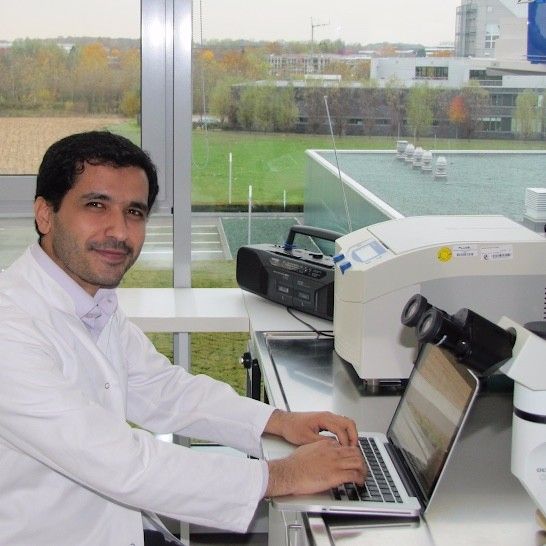
Observers say the dismissal of dissident professors may be a preemptive move to reduce the chances of campus protests on the first anniversary of Amini's death.
Iran’s former nuclear chief Ali-Akbar Salehi, who is also the deputy head of the Academy of Sciences of the Islamic Republic of Iran, spoke to the reformist Jamaran news website about Sharifi-Zarchi's expulsion on Monday. He said the academic level of universities will deteriorate due to the "mass injection" of unqualified academicians replacing the expelled professors. "It can no longer be called a university!" he exclaimed.
Salehi added that he had tried to contact the university's chancellor and had sent messages to him, stating that decisions of such sensitivity should be made with tolerance and careful consideration, even if Sharifi-Zarchi had not fully abided by some of the university's rules and regulations, as they claim.
In the past couple of days, at least ten university professors from Sharif, Allameh Tabatabai, and Tehran universities were either sacked or suspended. In April, nine professors from Tehran Azad University, who had openly criticized the regime and its policies, were similarly purged through forced early retirement.
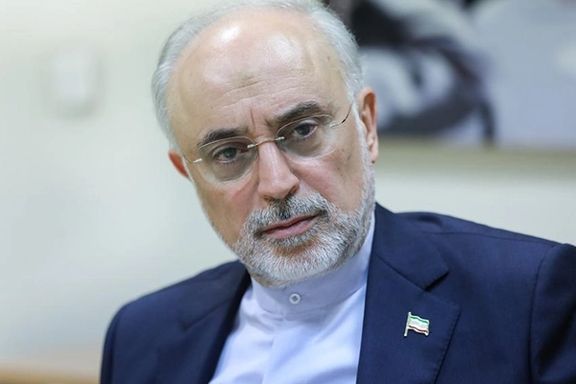
According to the reformist Etemad newspaper, from 2006 to the end of August 2023, 157 tenured professors have been dismissed, forced into retirement, or banned from teaching due to their critical and dissenting views, as part of a broader initiative to cleanse universities of critics of the hardline establishment.
During the presidency of Mahmoud Ahmadinejad (2005-2013), who was closely aligned with hardliners, the regime also attempted to employ professors who were ideologically aligned with the hardline and religious establishment.
The intensification of the purge appears to have caused delays in the start of the academic term in some universities, with several institutions potentially resorting to online lectures.
Ameneh Aali, a psychology professor at Allameh Tabatabai University, who is among those sacked, told the Didban-e Iran news website on Saturday that she was informed of her expulsion over the phone and was not provided a reason for the termination of her contract with the university.
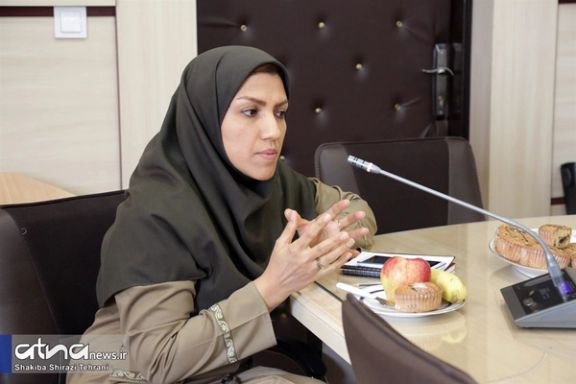
She asserted that she was dismissed because she had signed statements supporting protesting students last year, participated in their sit-ins, and objected to the suspension of students.
While the Ministry of Higher Education has not commented on the issue, the Interior Ministry released a statement on Monday describing criticism of the expulsion of academics as "media propaganda" and asserting that the Higher Education Ministry had taken "revolutionary action."
The Interior Ministry's statement also accused the sacked professors, who had opposed the crackdown on students and supported those who were arrested or suspended, of "political immorality and media show-off," and of "defiling" the academic arena with their "factional and even anti-national views."
In a statement on Sunday, the National Union of Iranian University Professors criticized the "profuse meddling" of security bodies in academic affairs and warned about the "gradual decline" of universities.
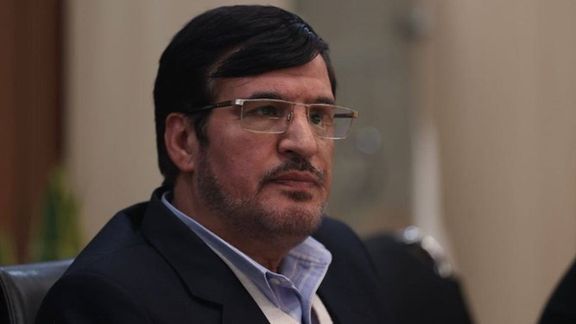
Two rights groups in France have lodged a legal complaint against Iran's Paralympic committee chief, accusing him of torture and crimes against humanity.
Ghafour Kargari, who currently serves as the president of Iran's national Paralympic committee, is presently in France attending a gathering with representatives from other nations participating in the 2024 Summer Paralympics games, according to statements from event organizers.
The two human rights groups assert that Kargari was a former commander of the Quds Force, a division of Iran's Islamic Revolutionary Guards Corps (IRGC) responsible for clandestine military operations and intelligence efforts throughout the Middle East.
Emmanuel Daoud, an attorney representing the French collective Femme Azadi and the Swedish NGO House of Liberty who filed the complaint, stated that France should not have issued him a visa for the meeting.
"The IRGC and the Quds group have been at the forefront of the violent repression of peaceful movements for democracy, civil rights and equality of men and women in Iran," they said in a document filed with France's anti-terror prosecutors and seen by AFP.
Given Kargari's high-ranking position in Iran's military hierarchy, the organizations assert that he was involved in formulating and executing strategies for these groups, leading them to argue that his actions "could also be qualified as crimes against humanity."
The 2024 Summer Paralympics are scheduled to be held from August 28 to September 8, featuring the participation of over 4,000 athletes.
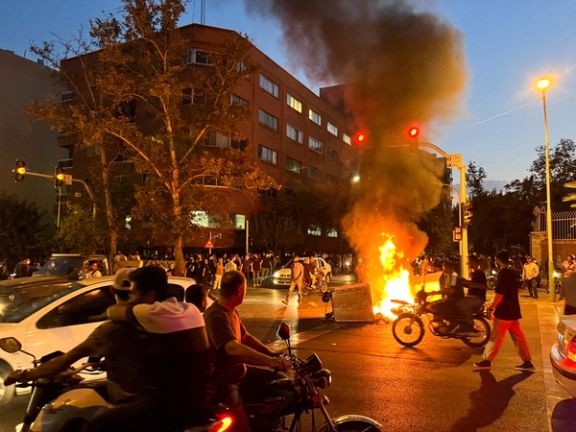
Protests appear to have reignited in Iran, with the city of Izeh in the southern Khuzestan province becoming the focal point of clashes between citizens and security forces.
The popular dissident Twitter account, 1500tasvir, which had been dormant for weeks, published correspondences with residents of Izeh this week claiming that regime agents have opened fire on people to quell the demonstrations. Although unconfirmed, reports suggest that these actions have indeed taken place.
Messages sent to 1500tasvir from city residents detailed the use of live ammunition by regime agents to assert control over the city. Additionally, videos have emerged online, depicting citizens chanting slogans against the regime.
While Iranian social media users discuss the unrest in Izeh, no official reports or images regarding the ongoing protests have been released online. A video circulating on the internet shows city residents chanting slogans in support of Iran's exiled prince, Reza Pahlavi, who has emerged as a prominent opposition figure.
It is apparent that this particular rally occurred weeks ago.The city witnessed clashes after a young protester named Kemar Tahmasbi was killed in an armed confrontation with regime forces just last week.
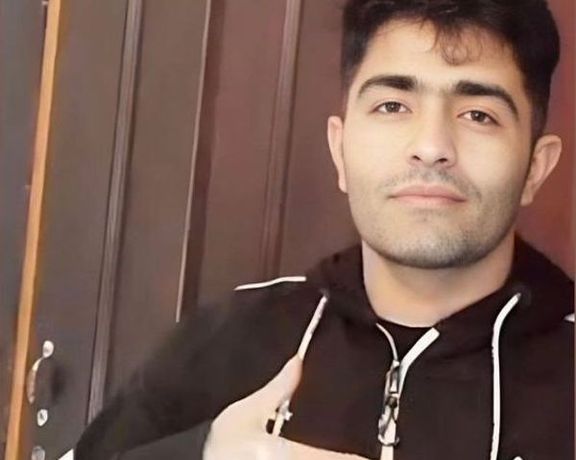
Tahmasbi was among the youth who actively participated in protests that unfolded between the 15th and 17th of November in Izeh. He shared camaraderie with Mustafa Ahmadpour, another protester killed on the 21st of July in a fierce armed confrontation with regime agents.
The IRGC issued a statement acknowledging that, in response to "organized actions by armed and criminal elements in Izeh, orders were issued to detain them after identifying their locations and activities. These individuals resisted arrest and, in the exchange of gunfire, two were killed, while three were apprehended."
In an earlier development in April, eight citizens detained during nationwide protests in Izeh were indicted on charges such as "waging war against God" and "corruption on earth," which carry potential death sentences. These arrests took place in November 2022 by the intelligence agents of the Islamic Revolutionary Guard Corps.
The regime's crackdown on dissent has intensified ahead of the anniversary of the Women, Life, Freedom movement. The uprising, sparked by the death in custody of Mahsa Amini in September, has been the most significant challenge to the clerical regime since its establishment in 1979. Regime repression forces killed over 500 people and arrested over 22,000 during the protest rallies.
In an attempt to stifle potential actions within universities, the regime has escalated its crackdown on academics in recent weeks. This includes dismissing tens of professors and banning even more students.
An Iranian daily article earlier this week revealed details about the regime's purge of university professors. Just last Sunday, at least 10 university professors were dismissed due to their support for the popular uprising.
The regime is replacing professors critical of the regime with "religious" and "revolutionary" professors.
Intelligence agents have threatened the families of protesters killed during the rallies, summoned all protesters released on bail, and issued warnings of severe punishments for those who participate in protests.
However, calls for protests and strikes in mid-September are increasing as the anniversary of Mahsa Amini's death serves as an opportunity for dissidents to reaffirm their commitment and solidarity against the regime.






